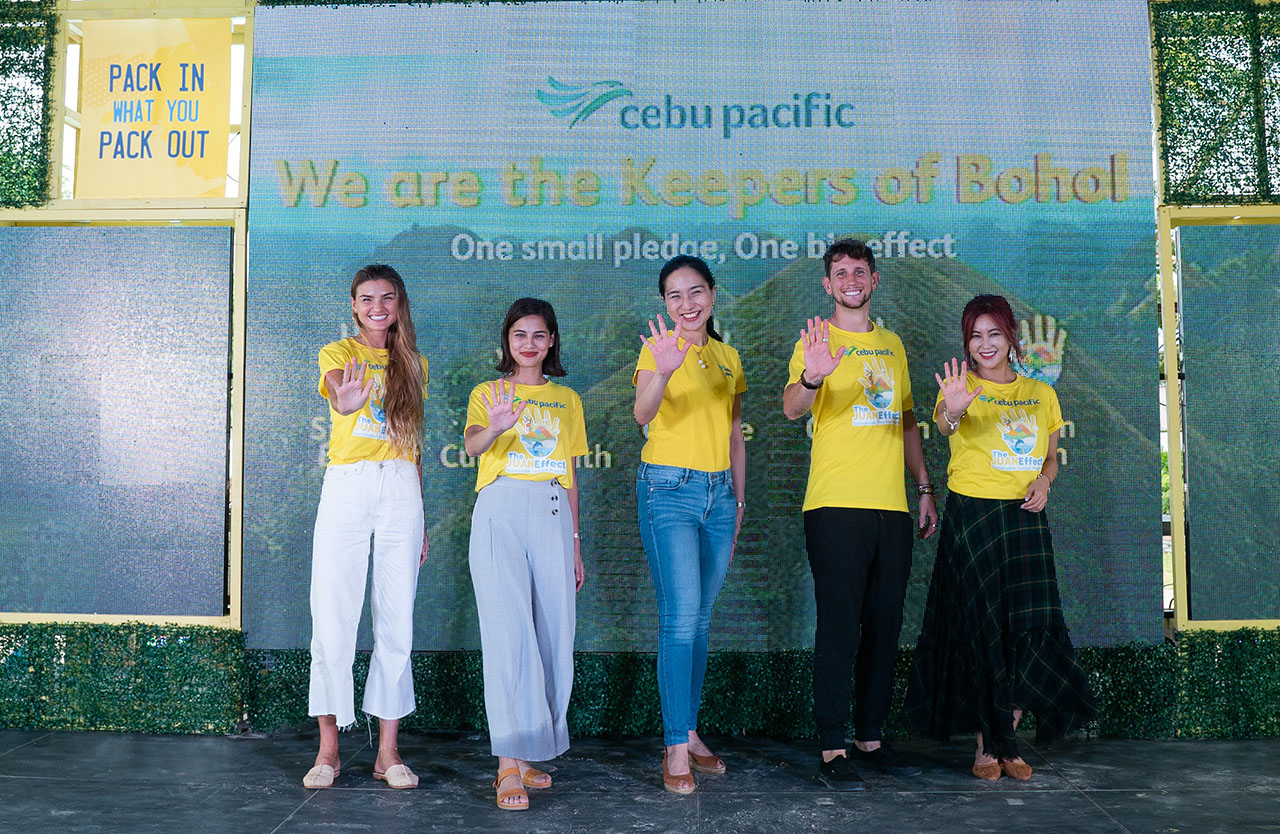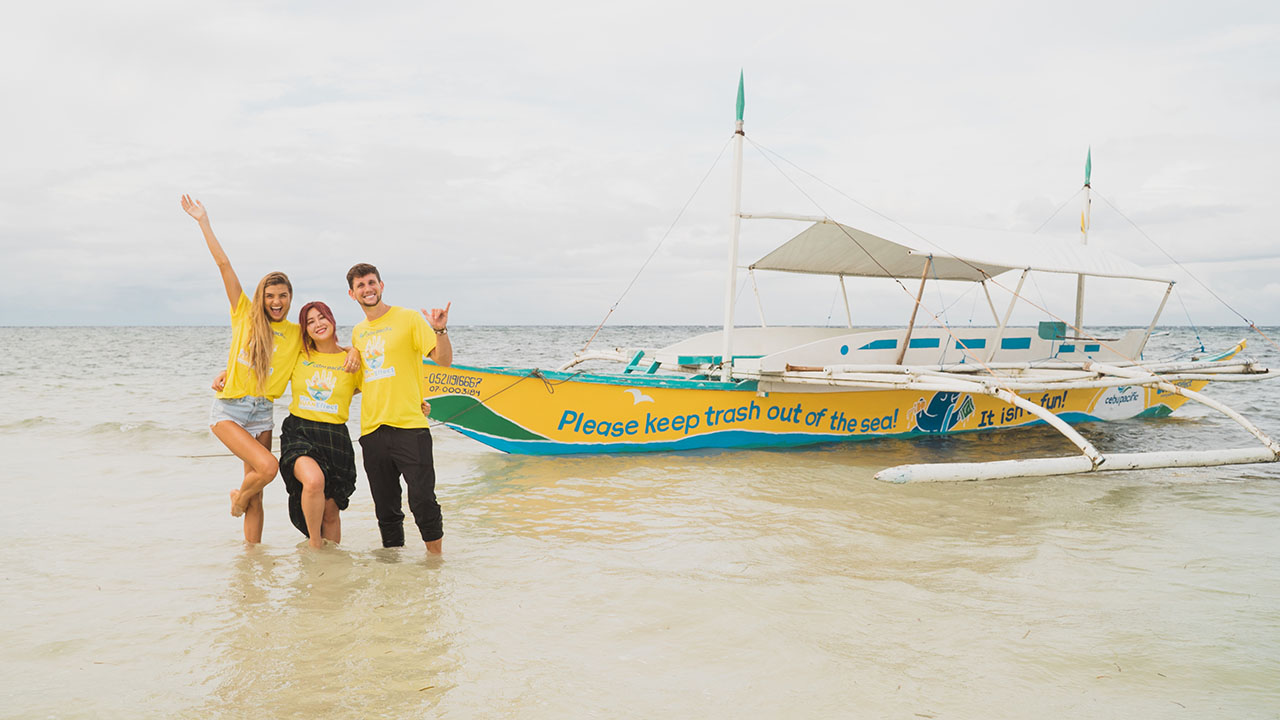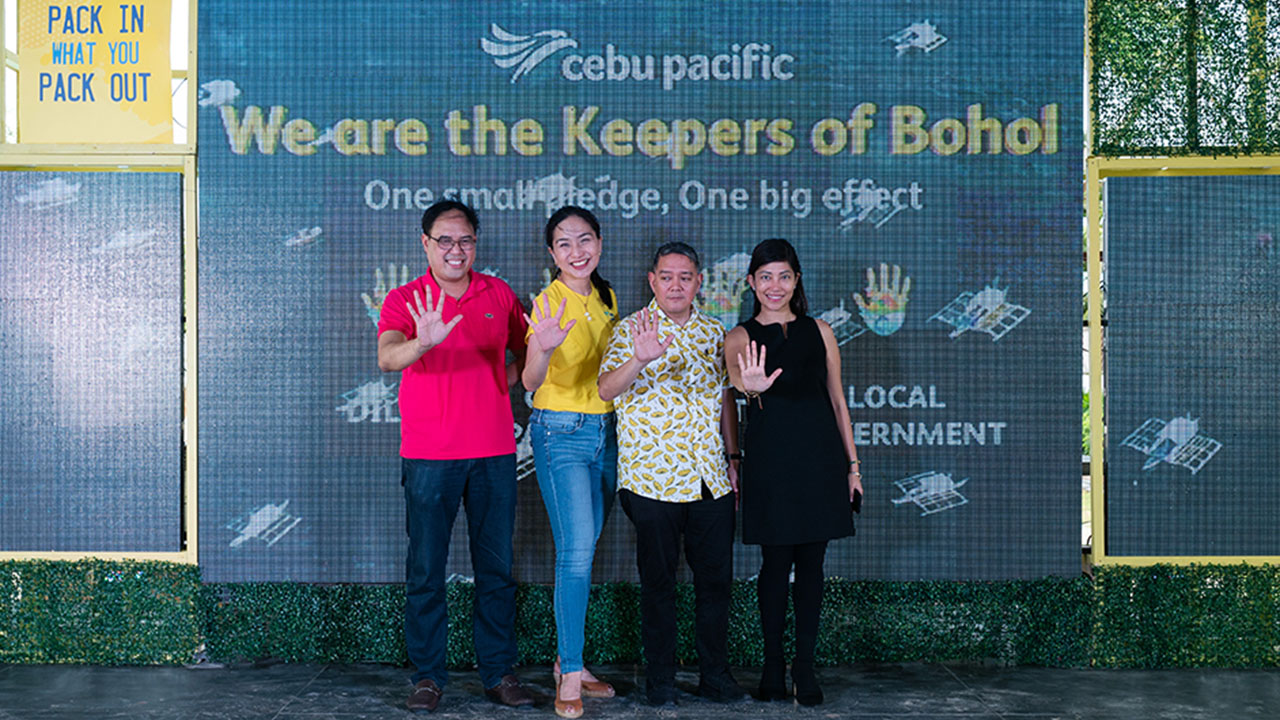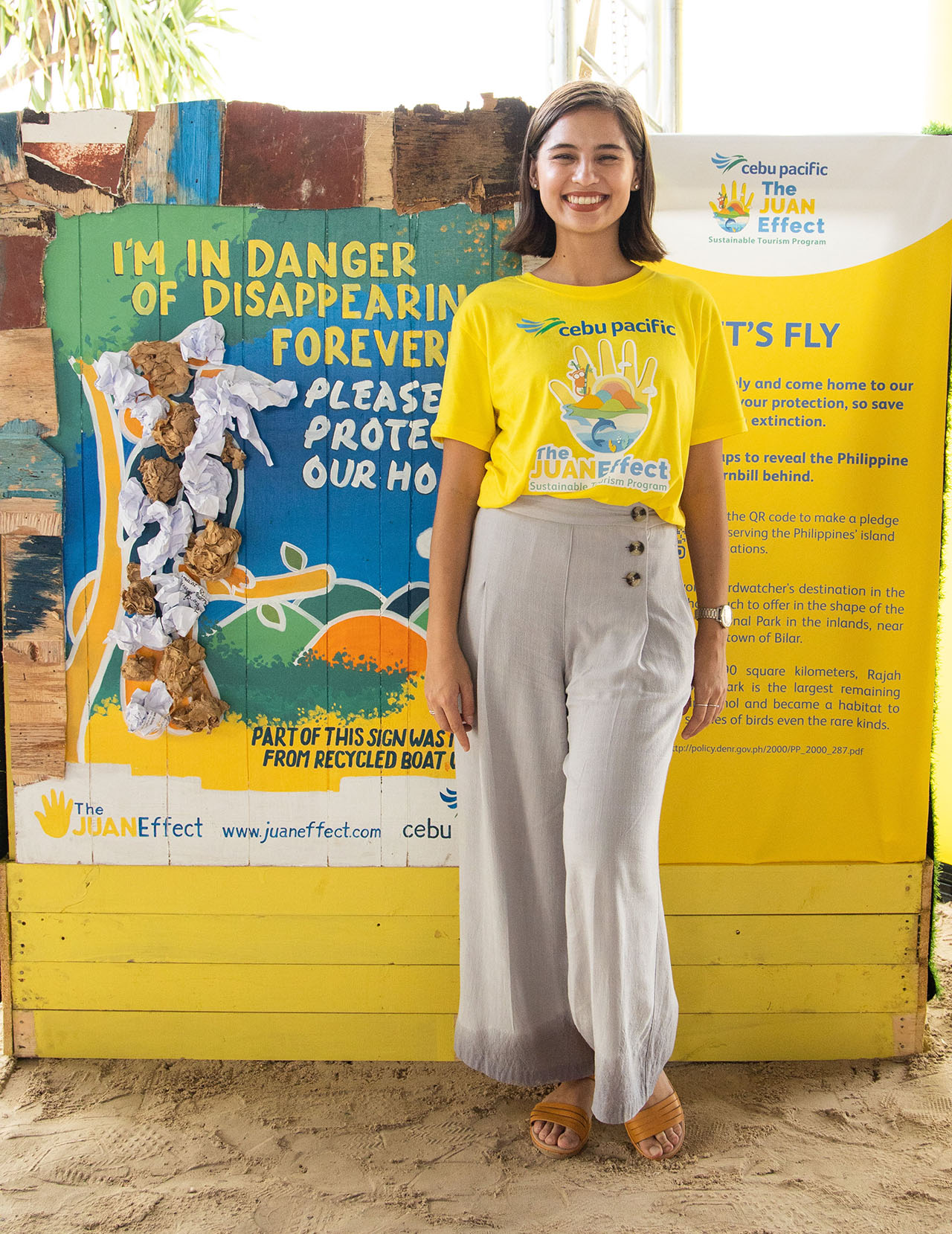Following successful rollouts in Siargao and Boracay, the third module of Juan Effect, the sustainable tourism advocacy of Cebu Pacific, was launched last January in Bohol.

At the festive event held outside the Moadto Strip mall on Panglao Island, representatives from the nation’s leading airline were joined by Department of Tourism Undersecretary Art Boncato, Department of the Interior and Local Government Undersecretary Epimaco Densing, Bohol Provincial Administrator Atty. Kathyrin Pioquinto, and the Juan Effect Bohol ambassadors: environmentalist and actress Jasmine Curtis-Smith, Canadian filmmaker Lost LeBlanc, South Korean musician and artist Solbi, and Australian fitness expert Sjana Elise.
Bohol, which ranks among the top destinations of the nation’s leading carrier, was the perfect location to continue the drive for sustainable tourism. The 10th largest island in the Philippines, Bohol is blessed with an abundance of natural and man-made wonders, drawing travelers from far and wide. Among the must-see attractions include the island’s numerous white sand beaches, the instantly recognizable Chocolate Hills, its tarsier sanctuaries, the charming Loboc River Cruise, the enchanting man-made forest, and awe-inspiring Spanish colonial era churches. The local government estimates that 1.2 million people visited Bohol in 2019; this year, they’ve set a target of more than 2 million visitors.
While this is a welcome development, the rise in tourism can trigger unwanted consequences, said Candice Iyog, Vice President for Marketing and Customer Experience of Cebu Pacific, in her remarks at the event. She reminded the audience that while tourism is a great driver of the country’s economy, as it creates jobs and business opportunities, it can also have unintended consequences such as pollution, environmental degradation, and disregard for the local culture and traditions. Recognizing this, Cebu Pacific fully embraced the sustainable tourism advocacy, launching Juan Effect in 2018. “We feel It is incumbent upon us to do what we can to mitigate the unintended consequences of tourism growth. We want to be mindful of how we grow. Mindful of the environment, mindful of the culture, mindful of the impact,” said Iyog.

This message was well received in Bohol, which has long been a bastion of socially responsible tourism. The province’s primary gateway is one of the best examples of the eco-tourism advocacy. Opened in November 2018, the Bohol-Panglao International Airport can accommodate up to 2 million passengers annually, a 150% increase in passenger volume over the old Tagbilaran airport. More importantly, the airport is considered the country’s first green airport, as it uses natural ventilation and is powered by solar energy. Close to 2,000 trees and around 240,000 shrubs dot the landscape that surrounds the new airport. Tourists arriving at this green gateway are immediately made aware that Bohol takes the environment and sustainability very seriously.
The adoption of Bohol as a Juan Effect site aims to augment the efforts of the Department of Tourism, the Department of Environment and Natural Resources, the Department of the Interior and Local Government, and Bohol’s local government in raising awareness on responsible tourism. To start, different types of signage will be installed in Bohol’s most visited tourist attractions, displaying visually captivating messages such as “Please keep the sea clean,” “The trash you dispose of improperly will fly to the sea,” and a few other timely reminders to tourists. The signs, which are partially made of recycled materials, will be in English, Korean, Japanese and Chinese, reflecting the languages of Bohol’s top tourist markets. According to Juan Effect ambassador Jasmine Curtis Smith, the signs give visitors a “template of how we can be responsible tourists and take care—while having fun—of Mother Nature.”
This information campaign will be amplified online with Juan Effect Ambassadors from different parts of the world. As Iyog made clear, a more sustainable future begins with all of us committing to make even just one change in our lifestyles. Juan Effect, which is named after the Filipino term for the everyday Joe, seeks to “impress upon travelers and local stakeholders that they can make a difference by changing one small act. Together, we can make a difference.”
Join Cebu Pacific in keeping the Philippine islands clean and beautiful by making a pledge at www.juaneffect.com.




